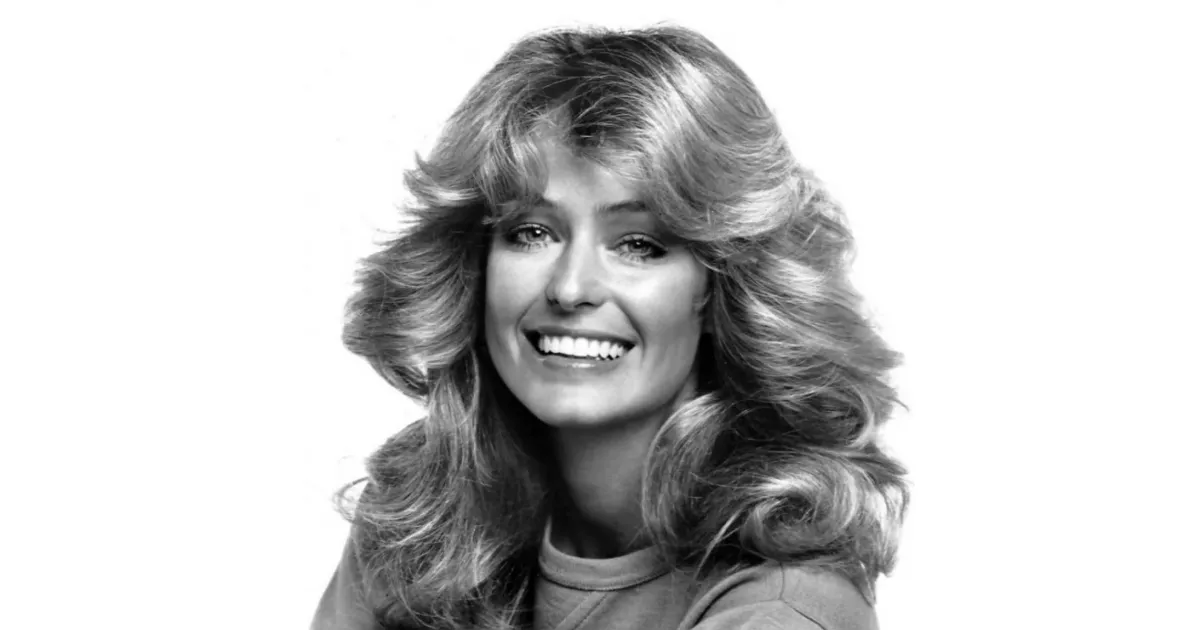Farrah Fawcett was an American actress renowned for her role as one of the original Charlie's Angels. Her performance in the show catapulted her to international fame. Throughout her career, she received numerous award nominations, including four Primetime Emmy Award nominations and six Golden Globe Award nominations.
1914: Birth of Farrah Fawcett's Mother
Farrah Fawcett's mother, Pauline Alice Evans, was born in 1914.
1917: Birth of Farrah Fawcett's Father
Farrah Fawcett's father, James William Fawcett, was born in 1917.
February 2, 1947: Birth of Farrah Fawcett
On February 2, 1947, Farrah Fawcett was born in Corpus Christi, Texas.
1965: Enrollment at the University of Texas
Farrah Fawcett began attending the University of Texas in 1965, where she initially studied microbiology before switching to art.
1968: Leaving the University of Texas
Farrah Fawcett left the University of Texas in 1968 to pursue a career in entertainment.
1968: Signing with Screen Gems and Early Commercials
Farrah Fawcett signed a contract with Screen Gems in 1968 and began appearing in commercials for various brands.
1968: Move to Los Angeles
With her parents' blessing, Farrah Fawcett moved to Los Angeles in the summer of 1968 to pursue acting.
1969: Film Debut in "Love Is a Funny Thing"
Farrah Fawcett made her film debut in the French romantic-drama "Love Is a Funny Thing" in 1969.
1969: Television Debut and Early Roles
Farrah Fawcett made her television debut in 1969, appearing in shows like "The Flying Nun" and "I Dream of Jeannie."
1970: Recurring Role in "I Dream of Jeannie"
Farrah Fawcett continued her role in "I Dream of Jeannie" in 1970.
1970: Role in "Myra Breckinridge"
Farrah Fawcett portrayed Mary Ann Pringle in the film "Myra Breckinridge" in 1970.
1973: Fawcett Marries Lee Majors
Farrah Fawcett and Lee Majors wed in 1973. Fawcett used the name Farrah Fawcett-Majors professionally during their marriage.
1973: Inspiration Behind "Midnight Train to Georgia"
The iconic song "Midnight Train to Georgia" was inspired by a conversation songwriter Jim Weatherly had with Farrah Fawcett in 1973, showcasing her influence even in unexpected places.
1974: Recurring Roles in "Harry O" and "The Six Million Dollar Man"
Farrah Fawcett landed recurring roles in the television series "Harry O" and "The Six Million Dollar Man" in 1974.
March 21, 1976: Premiere of "Charlie's Angels" Movie
The made-for-TV movie "Charlie's Angels," featuring Farrah Fawcett, premiered on March 21, 1976.
September 22, 1976: Charlie's Angels Debut
On September 22, 1976, the television series "Charlie's Angels" premiered, instantly catapulting its three lead actresses, including Farrah Fawcett, to stardom.
1976: Supporting Role in "Logan's Run"
Farrah Fawcett had a supporting role in the science-fiction film "Logan's Run" in 1976.
1976: Release of Iconic Swimsuit Poster
Farrah Fawcett's iconic red swimsuit poster was released in 1976.
1976: Breakthrough Role in "Charlie's Angels"
In 1976, Farrah Fawcett's career skyrocketed when she took on the role of Jill Munroe in "Charlie's Angels."
1976: Iconic Red Swimsuit Poster
In 1976, Farrah Fawcett's red swimsuit poster, shot by Bruce McBroom, was released and became the best-selling poster in history.
1977: People's Choice Award and TV Guide Interview
In 1977, Farrah Fawcett won a People's Choice Award for Favorite Performer in a New TV Program for her role in "Charlie's Angels." That same year, she gave a memorable interview to TV Guide where she jokingly attributed the show's success to the fact that "none of us wears a bra."
1977: Departure from Charlie's Angels
In a surprising turn of events, Farrah Fawcett decided to leave the hit show "Charlie's Angels" in the spring of 1977 after just one season. Her departure led to legal disputes and various explanations, including the strain on her marriage due to conflicting filming schedules with her husband, Lee Majors, and her desire to explore more challenging film roles.
1978: Guest Appearances on Charlie's Angels
As part of her contractual obligation after leaving "Charlie's Angels" prematurely, Farrah Fawcett agreed to make six guest appearances on the show between 1978 and 1980.
1978: Somebody Killed Her Husband Release
Farrah Fawcett's first film after leaving "Charlie's Angels," titled "Somebody Killed Her Husband," was released in 1978. Unfortunately, the film was poorly received by critics and audiences alike.
1979: Fawcett and Majors Separate
Farrah Fawcett and Lee Majors separated in 1979 after six years of marriage. They eventually divorced in 1982.
1979: Role in "Sunburn"
Farrah Fawcett starred in the film "Sunburn" in 1979.
1979: Sunburn Release
In 1979, Farrah Fawcett starred in the comedy "Sunburn" alongside Charles Grodin and Art Carney. The film, however, was met with unfavorable reviews, continuing a string of box office disappointments for Fawcett.
1980: Role in "Saturn 3"
Farrah Fawcett appeared in the film "Saturn 3" in 1980.
1980: Saturn 3 Brief Topless Appearance
Farrah Fawcett briefly appeared topless in the 1980 science fiction film "Saturn 3," marking a departure from her usual image at the time.
1980: Conclusion of Guest Appearances in "Charlie's Angels"
Farrah Fawcett concluded her guest appearances in "Charlie's Angels" in 1980.
1980: Guest Appearances Conclude
Farrah Fawcett fulfilled her contractual obligation to make guest appearances on "Charlie's Angels" in 1980, two years after her initial departure.
1980: Saturn 3 Release
Farrah Fawcett starred alongside Kirk Douglas in the science fiction film "Saturn 3," directed by Stanley Donen, in 1980. Despite the star power, the film received unfavorable reviews and performed poorly at the box office.
1980: Andy Warhol Creates Portraits of Farrah Fawcett
Farrah Fawcett, facilitated by Ryan O'Neal, had two portraits done by renowned artist Andy Warhol in 1980.
1981: Role in "The Cannonball Run"
Farrah Fawcett was part of the cast of the film "The Cannonball Run" in 1981.
1981: The Cannonball Run and Murder in Texas
In 1981, Farrah Fawcett appeared in two contrasting projects. She was part of the ensemble cast in the comedy "The Cannonball Run," and later that year, she starred in the television movie "Murder in Texas" with Katharine Ross, Sam Elliott, and Andy Griffith.
1982: Fawcett and Majors Divorce
Farrah Fawcett and Lee Majors divorced in 1982 after separating in 1979.
1983: Extremities Stage Production
Farrah Fawcett received critical acclaim in 1983 for her performance in the Off-Broadway stage production of "Extremities," a controversial play by William Mastrosimone. Fawcett took over the lead role, portraying an attempted rape victim who turns the tables on her attacker, from Susan Sarandon.
1983: Critical Acclaim for "Extremities"
Farrah Fawcett received positive reviews for her performance in the Off-Broadway play "Extremities" in 1983.
1984: The Burning Bed
Farrah Fawcett garnered critical acclaim and her first Emmy Award nomination for her role as Francine Hughes, a battered wife, in the impactful television movie "The Burning Bed." The film, a landmark production, was the highest-rated TV movie of the season and brought national attention to the issue of domestic violence, even providing a hotline number for victims.
1984: Emmy Award Nomination for "The Burning Bed"
Farrah Fawcett's performance as a battered wife in the 1984 television movie "The Burning Bed" garnered her an Emmy Award nomination.
January 30, 1985: Fawcett and O'Neal's Son, Redmond, is Born
Redmond James Fawcett-O'Neal, son of Farrah Fawcett and Ryan O'Neal, was born on January 30, 1985.
1985: Fawcett and O'Neal's Son is Born
Farrah Fawcett and Ryan O'Neal welcomed their son, Redmond James Fawcett O'Neal, in 1985.
1986: Extremities Film Adaptation and Golden Globe Nomination
Farrah Fawcett reprised her stage role in the film adaptation of "Extremities" in 1986. Her performance was lauded, earning her a Golden Globe nomination for Best Actress in a Motion Picture - Drama.
1986: Golden Globe Nomination for "Extremities" Film
Farrah Fawcett starred in the film adaptation of "Extremities" in 1986 and earned a Golden Globe nomination.
1989: Small Sacrifices
Farrah Fawcett delivered a powerful performance as convicted murderer Diane Downs in the miniseries "Small Sacrifices" in 1989. The role earned her a second Emmy Award nomination and her sixth Golden Globe Award nomination.
1989: Double Exposure: The Story of Margaret Bourke-White
Farrah Fawcett portrayed the renowned LIFE magazine photojournalist Margaret Bourke-White in the television movie "Double Exposure: The Story of Margaret Bourke-White." Her performance earned her a CableACE Award.
1989: Emmy Award Nomination for "Small Sacrifices"
In 1989, Farrah Fawcett portrayed real-life murderer Diane Downs in the television movie "Small Sacrifices," which led to her receiving an Emmy Award nomination.
1994: Fawcett Discusses Relationship with O'Neal
In a 1994 interview, Farrah Fawcett openly discussed the complexities of her relationship with Ryan O'Neal. She acknowledged both the joys and heartbreaks they experienced together.
December 1995: Playboy Pictorial
Breaking away from her previous stance, Farrah Fawcett, at the age of 50, posed for a semi-nude pictorial in the December 1995 issue of Playboy, causing a sensation and becoming a top seller.
June 5, 1997: Late Show with David Letterman Appearance
Farrah Fawcett's appearance on "Late Show with David Letterman" on June 5, 1997, drew negative commentary for her rambling and distracted demeanor during the interview. Fawcett later clarified that her behavior was intended as playful banter with Letterman.
July 1997: Playboy Pictorial and Video Release
Farrah Fawcett appeared in a second Playboy pictorial in the July 1997 issue, this time incorporating her passion for painting by using her body as a canvas. The issue, along with an accompanying video, became a top seller.
1997: Critical Acclaim for "The Apostle"
Despite receiving negative attention for her appearance on "The Late Show with David Letterman," Farrah Fawcett earned praise for her performance in the film "The Apostle" in 1997.
1997: Fawcett Begins Dating James Orr
Farrah Fawcett began a relationship with Canadian filmmaker James Orr in 1997.
1998: Fawcett Rekindles Romance with Greg Lott
Farrah Fawcett reconnected with her college sweetheart, Greg Lott, in 1998.
1998: Fawcett and Orr's Relationship Ends After Domestic Violence Incident
Farrah Fawcett's relationship with James Orr ended in 1998 after Orr's arrest and conviction for assaulting her.
1999: Return to Late Show with David Letterman
Farrah Fawcett returned as a guest on "Late Show with David Letterman" in 1999, putting to rest any speculation about her previous controversial appearance.
2000: Fawcett and Edmier's Collaborative Work Begins
Farrah Fawcett and sculptor Keith Edmier began their collaborative work in 2000, which would later be showcased in exhibitions.
2000: Role in "Dr. T & the Women"
Farrah Fawcett appeared in the film "Dr. T & the Women" in 2000.
October 16, 2001: Fawcett's Sister, Diane, Dies
Farrah Fawcett's older sister, Diane Fawcett Walls, passed away from lung cancer on October 16, 2001, shortly before her 63rd birthday.
2001: Fawcett and O'Neal Reunite
After a separation, Farrah Fawcett and Ryan O'Neal rekindled their romance in 2001.
2001: Fawcett Befriends Christopher Ciccone
Around 2001, Farrah Fawcett became friends with artist and designer Christopher Ciccone, brother of pop star Madonna.
2001: Recurring Role in "Spin City"
Farrah Fawcett secured a recurring role in the sitcom "Spin City" in 2001.
2002: Recurring Role in "The Guardian"
Farrah Fawcett landed a recurring role in the drama series "The Guardian" in 2002.
2002: Fawcett's Collaboration with Keith Edmier Exhibited
In 2002, a collaborative art exhibition featuring Farrah Fawcett and sculptor Keith Edmier's work opened at the Los Angeles County Museum of Art. The exhibit, "Contemporary Projects 7: Keith Edmier and Farrah Fawcett 2000," showcased their collaborative pieces.
November 2003: "Bobbi Boland" Broadway Debut Canceled
In November 2003, Farrah Fawcett was set to make her Broadway debut in the play "Bobbi Boland." Unfortunately, the show was canceled during previews before its official opening.
2003: Third Emmy Nomination for "The Guardian"
Farrah Fawcett received her third Emmy nomination for her work on the television series "The Guardian" in 2003.
2004: Television Tributes for Farrah Fawcett
Following Farrah Fawcett's passing, multiple television networks aired tributes and specials dedicated to her life and career in 2004.
2004: Fawcett Earns Third Emmy Nomination
In 2004, Farrah Fawcett received her third Emmy Award nomination for her work on the television series "The Guardian."
2004: Behind the Camera: The Unauthorized Story of Charlie's Angels
The television film "Behind the Camera: The Unauthorized Story of Charlie's Angels," released in 2004, offered a dramatized account of the events surrounding the show, with actress Tricia Helfer portraying Farrah Fawcett.
March 4, 2005: Fawcett's Mother, Pauline, Dies
Farrah Fawcett's mother, Pauline Fawcett, passed away on March 4, 2005, at the age of 91.
2005: Death of Farrah Fawcett's Mother
Farrah Fawcett's mother, Pauline Alice Fawcett, passed away in 2005.
2006: Fawcett Diagnosed with Anal Cancer
Farrah Fawcett received an anal cancer diagnosis in 2006 and began treatment.
2006: Cancer Diagnosis
Farrah Fawcett was diagnosed with anal cancer in 2006.
February 2, 2007: Fawcett Declared Cancer-Free
On February 2, 2007, Farrah Fawcett's 60th birthday, it was announced that she was free of cancer.
May 2007: Fawcett's Cancer Returns
Sadly, Farrah Fawcett's cancer returned, and she received a Stage IV cancer diagnosis in May 2007.
2007: Fawcett Amends Living Trust
Farrah Fawcett last updated her living trust in 2007. Notably, she did not include long-time partner Ryan O'Neal as a beneficiary.
February 2009: Letterman's Apology
In an interesting turn of events, during an interview with Joaquin Phoenix on "Late Show with David Letterman" in February 2009, host David Letterman ended the interview abruptly due to Phoenix's incoherent behavior, issuing an apology to Farrah Fawcett. This apology referenced the 1997 interview and became a much-discussed moment on the show.
April 2009: Fawcett's Son Visits Her in Hospital
During Farrah Fawcett's hospitalization, her son, Redmond, was able to visit her, even though he was incarcerated at the time.
April 2009: Fawcett Hospitalized
Farrah Fawcett was hospitalized in early April 2009 upon her return to the United States. The hospitalization was due to a painful abdominal hematoma.
May 15, 2009: "Farrah's Story" Documentary Airs
On May 15, 2009, "Farrah's Story," a documentary filmed by Farrah Fawcett and Alana Stewart, premiered on NBC. The documentary chronicled Fawcett's battle with cancer.
June 22, 2009: O'Neal Announces Engagement to Fawcett
On June 22, 2009, Ryan O'Neal shared that Farrah Fawcett had agreed to marry him.
June 25, 2009: Death of Farrah Fawcett
Farrah Fawcett passed away on June 25, 2009, after a battle with cancer.
June 30, 2009: Fawcett's Funeral
A private funeral was held for Farrah Fawcett on June 30, 2009, in Los Angeles. She was laid to rest at the Westwood Village Memorial Park.
September 2009: Farrah Fawcett Remembered at Primetime Emmy Awards
Farrah Fawcett's television work was recognized at the 61st Primetime Emmy Awards in September 2009.
2009: Lott Claims O'Neal Kept Him From Fawcett Before Her Death
Following Fawcett's passing in 2009, Greg Lott alleged that Ryan O'Neal prevented him from seeing her during her final days.
2009: Release of "Farrah's Story" and Posthumous Emmy Nomination
The documentary "Farrah's Story," which chronicled Farrah Fawcett's battle with cancer, was released in 2009. She received a posthumous Emmy nomination for her work as a producer on the documentary.
March 2010: Academy Awards Snub Causes Controversy
The Academy of Motion Picture Arts and Sciences faced criticism for excluding Farrah Fawcett from the "In Memoriam" segment at the 82nd Academy Awards in March 2010, sparking outrage from her peers and fans.
2010: Death of Farrah Fawcett's Father
Farrah Fawcett's father, James William Fawcett, passed away in 2010.
February 2, 2011: Iconic Swimsuit Donated to Smithsonian
Farrah Fawcett's red swimsuit, made famous by the 1976 poster, was donated to the Smithsonian's National Museum of American History on February 2, 2011, becoming a piece of American cultural history.
2011: Farrah Fawcett Named One of the "100 Hottest Women of All-Time"
Men's Health magazine included Farrah Fawcett in their "100 Hottest Women of All-Time" list in 2011, placing her at number 31.
2011: University of Texas Sues O'Neal Over Warhol Portrait
The University of Texas filed a lawsuit against Ryan O'Neal in 2011 after discovering that a Warhol portrait of Fawcett, intended for the university, was missing from the art collection she bequeathed.
December 2013: Court Rules in Favor of O'Neal in Warhol Portrait Dispute
A Los Angeles court ruled in December 2013 that a Warhol portrait of Farrah Fawcett belonged to Ryan O'Neal, settling the dispute between O'Neal and the University of Texas.
2013: Ownership Dispute over Warhol Portrait
A 2013 legal battle between Ryan O'Neal and the University of Texas over Farrah Fawcett's art collection resulted in O'Neal gaining ownership of one of her Warhol portraits.
Mentioned in this timeline
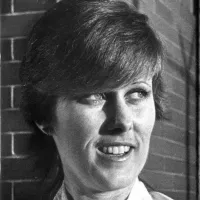
Elizabeth Diane Downs is an American woman convicted of murdering...
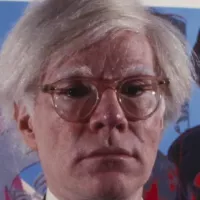
Andy Warhol - was a pivotal American artist film director...
The National Broadcasting Company NBC is a major American commercial...
The Guardian is a British daily newspaper founded in as...

Los Angeles is the most populous city in California and...
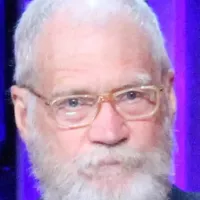
David Letterman is an iconic American television host comedian writer...
Trending
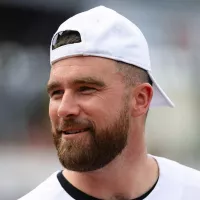
41 minutes ago Travis Kelce and Taylor Swift's relationship update: Hockey, wedding, and keeping things private.
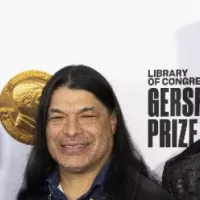
2 hours ago Metallica Announces Sphere Las Vegas Residency: 'Life Burns Faster' Concert Series in 2026

3 hours ago Priyanka Chopra Jonas stars in 'The Bluff,' a gritty pirate action movie.
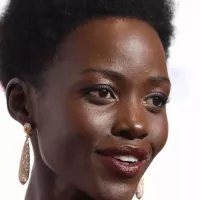
3 hours ago Lupita Nyong'o Shares Fibroid Struggle, Advocates for Women's Health in New Campaign
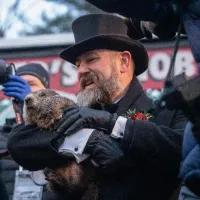
5 hours ago Souvenir Shop Manager Reflects on Final Groundhog Day with Punxsutawney Phil
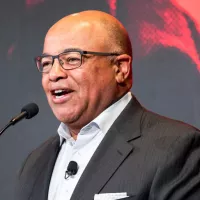
5 hours ago Mike Tirico's Inspiring Olympic Sign-Off: A Look at His Legacy in Sports Broadcasting.
Popular

Jesse Jackson is an American civil rights activist politician and...

Susan Rice is an American diplomat and public official prominent...

Barack Obama the th U S President - was the...

Michael Joseph Jackson the King of Pop was a highly...

XXXTentacion born Jahseh Dwayne Ricardo Onfroy was a controversial yet...

Bernie Sanders is a prominent American politician currently serving as...
